

Australian Foreign Minister Senator Penny Wong, left, and her Tuvaluan counterpart Paulson Panapa signing the Falepili Union explanatory memorandum in May 2024.
Photo/X/SenatorWong
'Is this really fale pili?' Tuvaluans raise concerns about treaty
While Australia's landmark climate migration pact with Tuvalu is supported across the Pacific, many Tuvaluans have mixed feelings about the agreement.


Realm relations in focus as Tokelau-NZ marks 100-year history
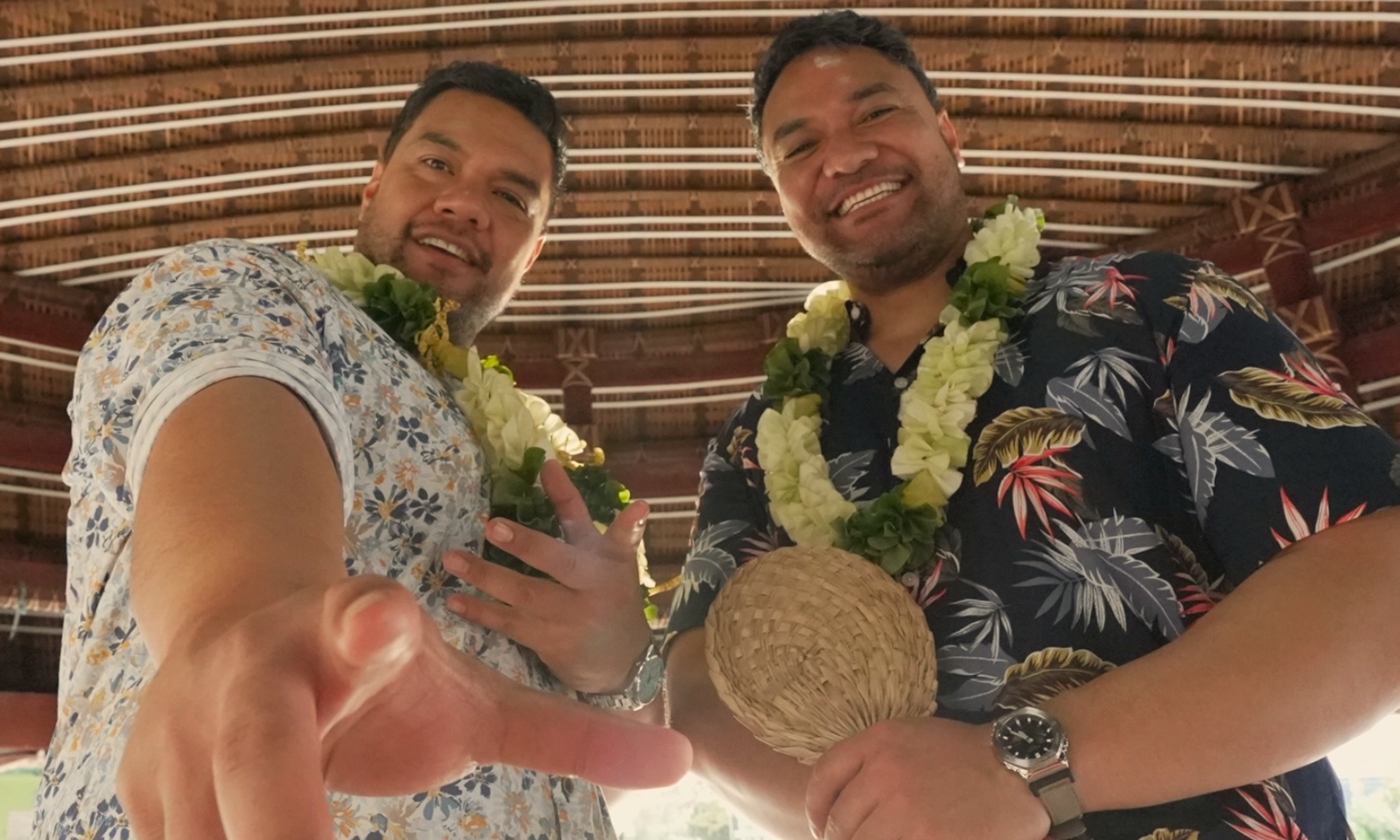
The Sāmoan Tenor named Pati who turned disadvantage into an operatic destiny

Argentina eyes Pacific Islands Forum dialogue partnership as NZ says nations must decide

Naval officers face charges over sinking of HMNZS Manawanui

Realm relations in focus as Tokelau-NZ marks 100-year history

The Sāmoan Tenor named Pati who turned disadvantage into an operatic destiny

Argentina eyes Pacific Islands Forum dialogue partnership as NZ says nations must decide
The Australian and Tuvaluan governments have been "highly visible" in their negotiations of the Falepili Union Treaty, but the lack of consultation with the Tuvaluan people has been widely criticised.
The agreement, ratified at the Pacific Islands Forum leaders meeting in Tonga in August last year, aims to help Tuvaluans escape the impacts of climate change and move to Australia.
Under this new migration pathway, 280 Tuvaluans will be granted the opportunity to live and work in Australia each year.
The visas will be allocated by ballot and will give the holders permanent residency; these features were both expected but are now confirmed.
There is no maximum age requirement: applicants must be 18 or older.
There are no disability bars.
Minimum residence periods for access to several benefits and services will be waived.
There is no risk of forfeiture of the right to permanent residency from outside the country. Instead, the “[v]isas would provide for indefinite permanent residency, with freedom for unlimited travel to and from Australia”.
Tuvalu is a nation of small islands and atolls located 3700 kilometres from New Zealand, scattered across 680km of the vast Pacific Ocean, roughly halfway between Australia and Hawaii.
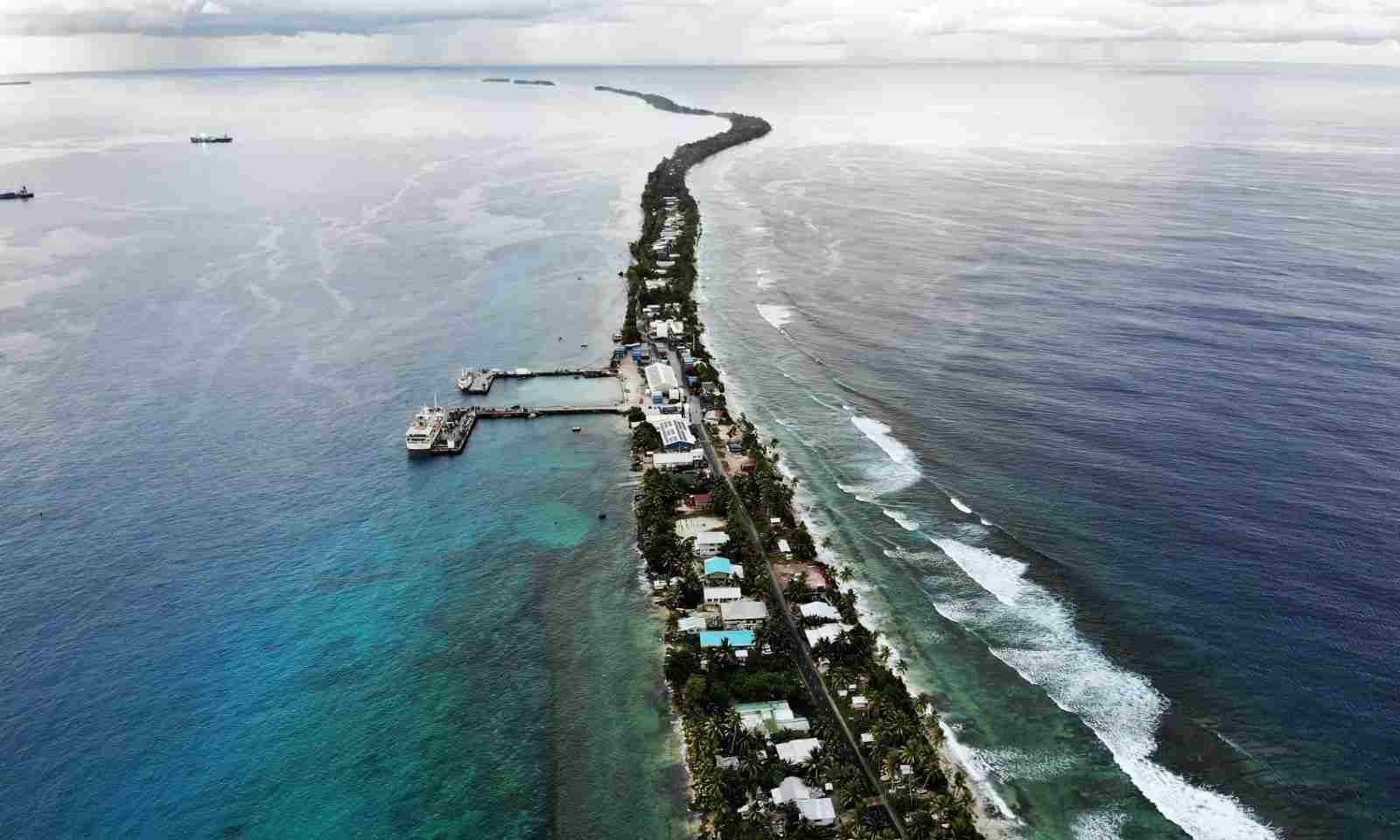
A world-first treaty with Australia ensures Tuvalu’s statehood will continue, even in the face of a climate catastrophe. Photo/Mario Tama
On average, Tuvalu stands less than three metres above sea level, putting its 11,200 people on the frontline of the global climate crisis.
Australian Prime Minister Anthony Albanese and former Tuvalu Prime Minister Kausea Natano signed the Falepili Treaty in November 2023 to address various issues, including security.
Albanese has assured that Tuvalu's statehood will remain intact despite the climate catastrophe.
"We are committed to helping Pacific neighbours because it supports stability and prosperity in our region. We can solve these challenges when we work together. It is the right thing to do.
"Through the Falepili Union, Australia recognises in a legally binding treaty that Tuvalu’s statehood will continue, even in the face of the worst climate impacts. This is a world first.
"As climate impacts worsen, Tuvaluans should have options to guarantee their safety and prosperity - allowing some to stay in their homes, and some to migrate with dignity."
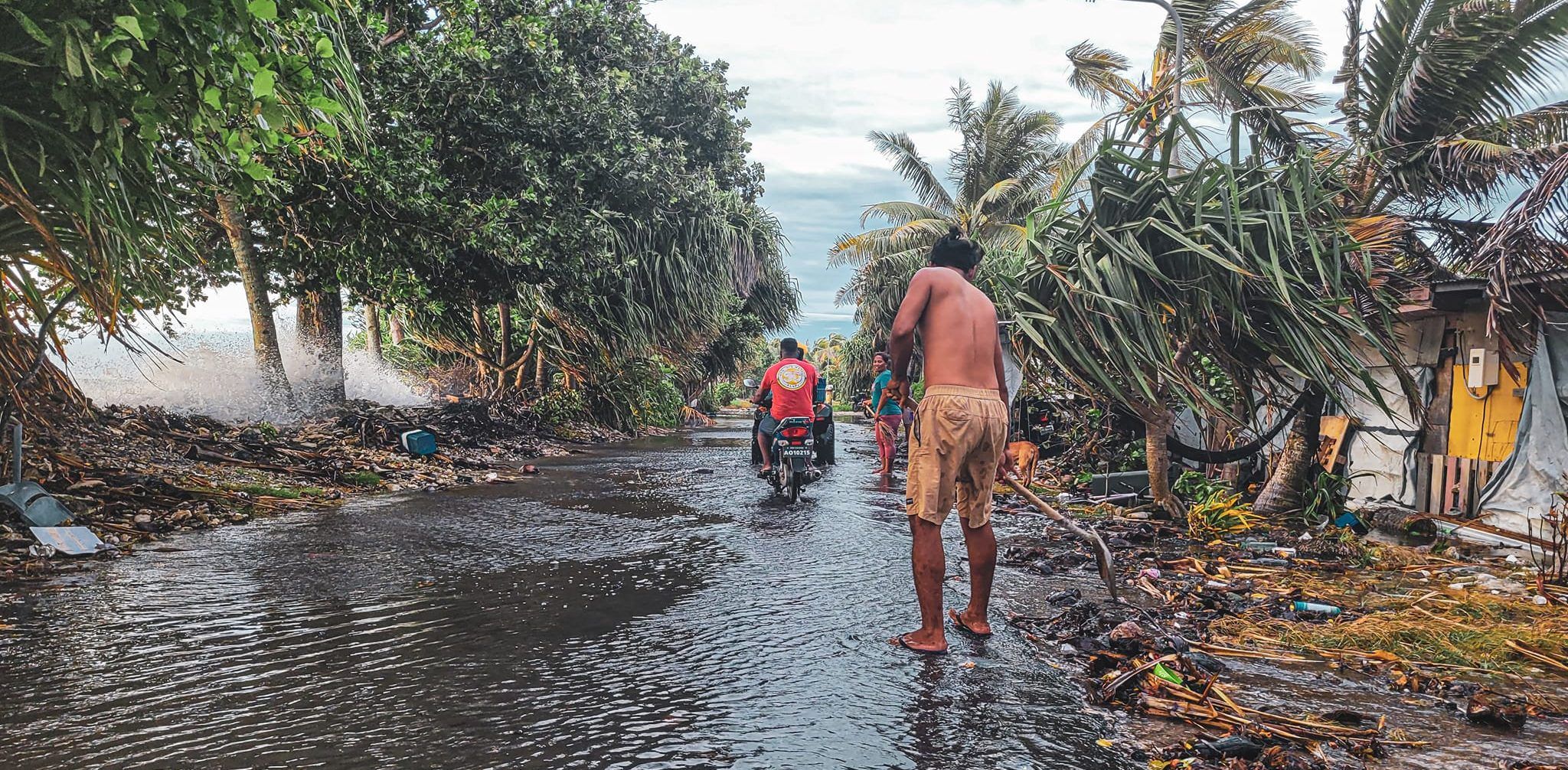
On average, Tuvalu stands less than three metres above sea level, putting its 11,200 people on the frontline of the global climate crisis. Photo/supplied
But some Tuvaluans believe that the true meaning of "falepili or fale pili" has been overlooked during the negotiations.
Researcher Taukiei Kitara from Griffith University in Queensland argues that while the treaty suggests a transactional relationship, it should be based on goodwill, "not as a consequence of vulnerability".
Kitara, a Tuvalu community leader in Brisbane, says falepili or fale pili means taking care of your neighbours as if they were family, but adds, "In this context, it is misleading".
He co-authored a report titled Tuvalu, Australia, and the Falepili Union. "Culturally, falepili is giving to neighbours without expecting anything in return.
"For some Tuvaluans who have spoken about the treaty, there is a perception that Australia has not engaged with the true spirit of falepili.
"Demanding the handover of sovereign decision-making capability in exchange for migration rights reads more like an ultimatum, not a friend helping those in need."
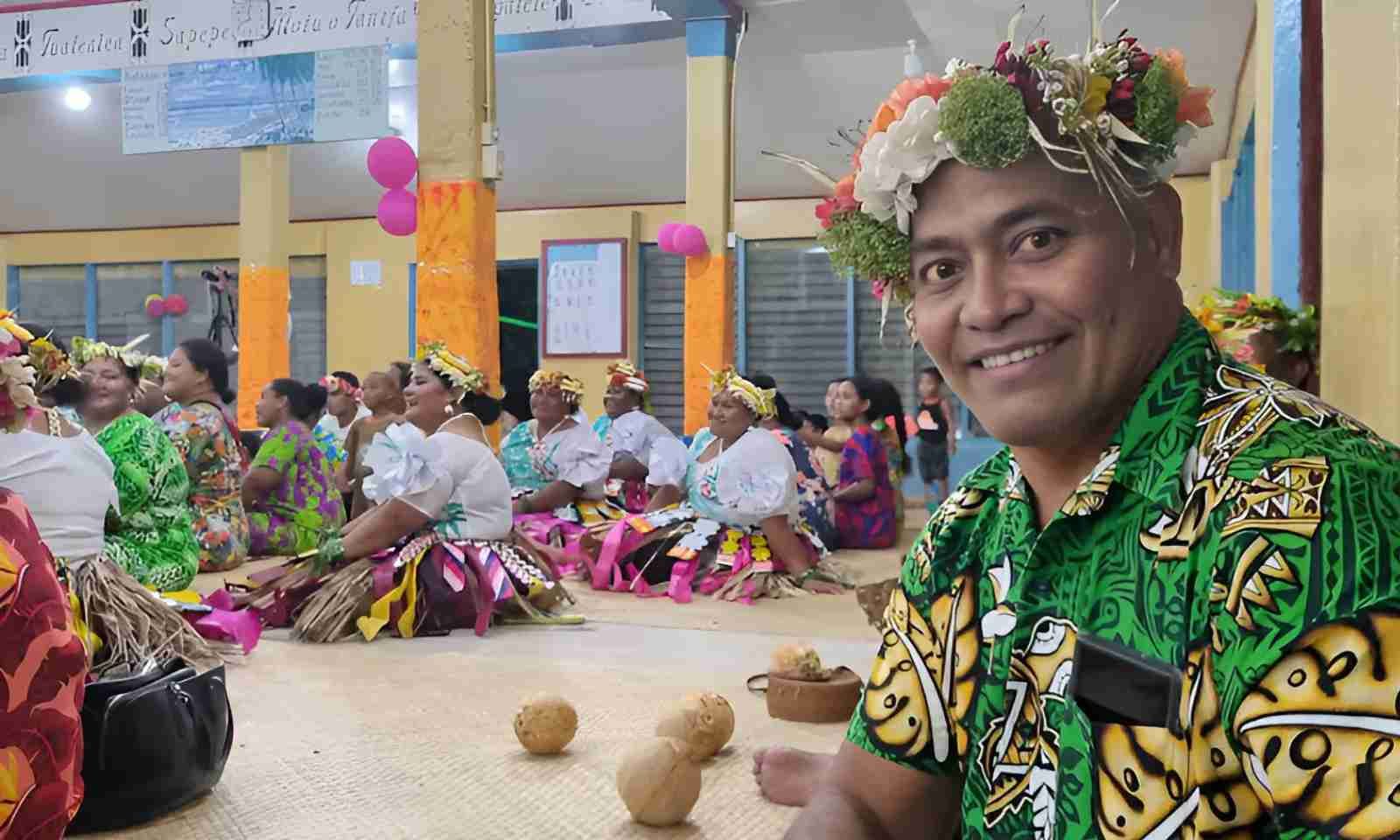
Taukiei Kitara is a Tuvaluan academic focused on climate change in the Pacific. Photo/supplied
Kitara says that under the Falepili Treaty, Australia will not need a security veto right. Instead, "Australia can one day, when they need something, ask for it from Tuvalu. This is how falepili works".
Australia says it will increase its financial assistance to Tuvalu, which is also seen as countering China's influence in the Pacific.
During a visit to Tuvalu in May last year, Australian Foreign Minister Penny Wong announced that her government had allocated A$110 million (NZ$122) in its national budget for the Pacific island nation.
This funding is increased from the A$17m Canberra provided to Tuvalu in the 2023-2024 budget.
The latest funding includes A$50m to build the first undersea cable to connect Tuvalu's residents to global telecommunications services.
Another A$15m will be used to establish a national security coordination centre, and $A10m will be provided as direct budget support.
Tuvalu and Australia have not historically maintained a close relationship.
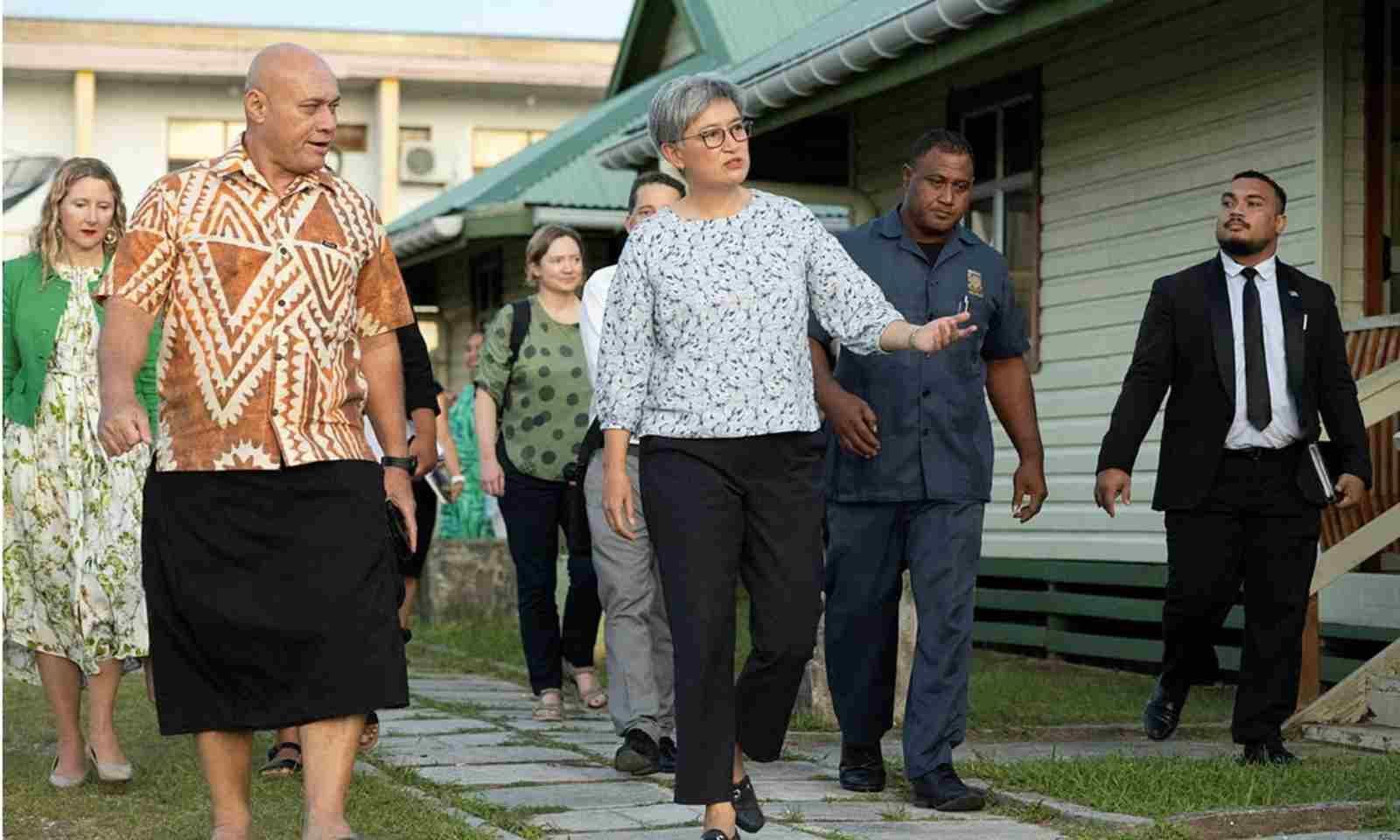
Australian Foreign Minister Penny Wong visited Tuvalu last May. Photo/supplied
Tuvalu does not have a high commission in Australia, as its diplomatic missions are in New Zealand, Fiji, Taiwan, Europe, and the United States.
But under the Falepili treaty, Tuvalu agreed to open a high commission in Canberra, while Australia has had a diplomatic mission in Tuvalu since 2019.
Tuvalu now has the second closest migration relationship with Australia, following New Zealand. Tuvalu's migration ties with Australia could be considered closer than those of NZ.
While the number of Kiwis who can migrate "Across the Ditch" is not limited, certain benefits are not available to them.
New Zealanders cannot access the National Disability Insurance Scheme unless they become citizens or permanent residents, whereas Tuvaluans will have access to it from day one.
Before the treaty was signed, the Tuvaluan government had committed to prioritising permanent statehood, emissions reductions, and adaptation to climate change.
For instance, Tuvalu's Long-term Adaptation Plan involved creating significant new areas of raised land in the capital, Funafuti, to protect the Pacific island nation against rising sea levels beyond 2100.
Tuvalu's Prime Minister Feleti Teo outlines his government's priorities and the future of the Falepili Union Treaty with Australia, among other things.
Natano's successor, Feleti Teo, appointed Prime Minister last February, sought "guarantees" from Canberra that the landmark treaty would not undermine Tuvalu's sovereignty.
Teo said a controversial security clause in the Falepili treaty has led to fears among Tuvaluans that Australia “might encroach on Tuvalu’s sovereignty”.
“That obviously gives the impression of Tuvalu conceding its sovereignty to decide whatever security arrangement it prefers."
Teo said he was disappointed over how quickly the previous government of Natano agreed with Canberra.
“What I’ve asked the Australians is that if we are able to come to some arrangement that stopped short of revising the treaty, that guarantees and assures that Tuvalu’s sovereignty is intact. Then I’m all good for it,” Teo said.
In November 2023, Maima Koro, a Pacific Research Fellow at Adelaide University, joined Pacific Mornings to talk about the Tuvalu-Australia deal, among other things.
Kitara believes that the success of this migration pathway lies with the few hundred-strong Tuvaluan diaspora in Australia.
"When Tuvaluan people migrate to Australia, New Zealand, or elsewhere, they stay with family members who are already there. These family members provide housing, advice, and other support needed while new arrivals are established.
"Sometimes, this care can provide housing or other financial support for months or years. New arrivals from Tuvalu to Australia are expected to be looked after this way.
"The Tuvaluan community in Australia is highly willing to do what they can to provide housing and other support to new arrivals. However, Tuvaluans in Australia feel there has been insufficient discussion with the Tuvaluan government about these issues, particularly the financial burden on Tuvaluans in Australia who are already feeling the pinch from the rising cost of living, especially food and housing.
"So, is this really fale pili? The Falepili Union Treaty should reflect the concept of falepili - of being a good neighbour, of being inclusive, and ensuring that everyone has a fair understanding of the risks and opportunities of migration to Australia."